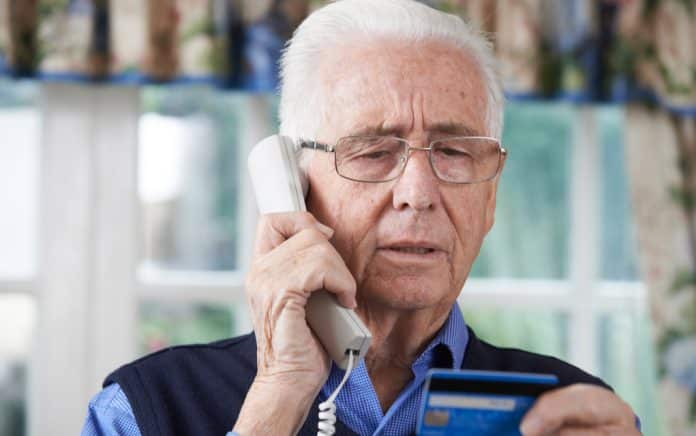
(FinancialHealth.net) – In today’s world, scams are everywhere. Examples include fraudulent Social Security Administration (SSA) calls, fake attempts to collect on illegitimate debts, and even targeted scams that attempt to outwit the elderly. No one is safe from any of these con games, but you can learn what to watch for and how to protect yourself.
Social Security Spoofing Scam
Since almost everything you do financially is associated with your Social Security number, thieves strive to access this information. The most common way they do this is by calling and claiming to be from the Social Security Administration. To make the call seem even more legitimate, they use a technique called spoofing. Spoofing allows the number they call from to show up on your phone as an actual SSA phone number.
The problem? The SSA will almost never contact you by phone unless you reach out to them first. Correspondence normally comes through the mail, not over the phone.
If you think you are a victim of this spoofing scam, simply hang up, call the official agency, and verify the request. You can also report scams at the FCC Complaint Center.
Fake Debt Collectors
These scammers come in all shapes and sizes. They will tell you that you owe on a loan you know nothing about, try to collect on debt when they aren’t authorized, claim a debt filed under bankruptcy must be paid, or sometimes even try to get you to pay a deceased relative’s debt. At times, they will have so much information about you, it will almost seem legitimate. But remember — never give them any more information than they already have.
Always stay on the side of safety. For debt you are unsure of, ask them for written proof of this in the form of a “validation notice.” The notice must include three elements: debt amount, creditor owed, and your rights under the Fair Debt Collection Practices Act (FDCPA). If you know the debt is yours, call your creditor to see if someone else has been authorized to collect on it. Lastly, report the call to the FTC.
Elderly Scams
As sad as it is to think, many con artists do their best to scam seniors out of their hard-earned and carefully saved money. And you might be surprised to learn just how many sophisticated rackets there really are out there.
Fly-by-night contractors may attempt to convince older Americans that they need expensive home renovations. The scam, here, is that seniors pay upfront — the work itself is never actually completed. Instead, the contractor simply disappears.
The grandparent scam is even more heinous. A frantic “grandchild” reaches out by telephone in an alleged “emergency.” They need money wired over to them, and they need it fast. The catch with this one is that the person calling isn’t really a grandkid at all — it’s just a scammer playing an often-convincing role.
Internet scams seem to be the most prevalent. Elderly get tricked into downloading fake anti-virus software. This software can either give the scammer access to the users personal information. It may even stop the computer from working altogether unless the user pays some kind of fee. Either way, the user has just given up information that will often bring about more trouble in the long run.
Though you can’t save every senior from all of the scams the world has to offer, we can do everything in our power to protect them. Make regular calls or visits, and always be wary of new “best friends.” The best we can do is watch out for one another.
~Here’s to Your Financial Health!
Copyright 2020, FinancialHealth.net


















